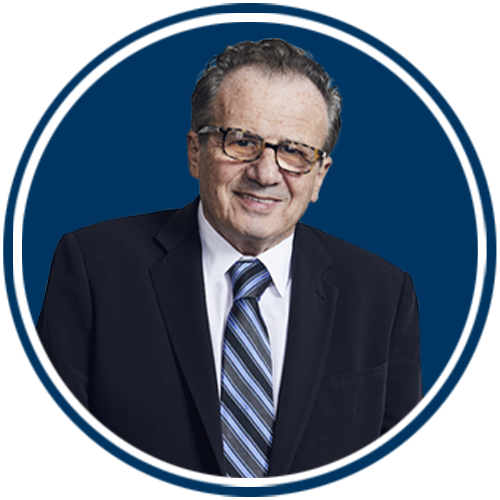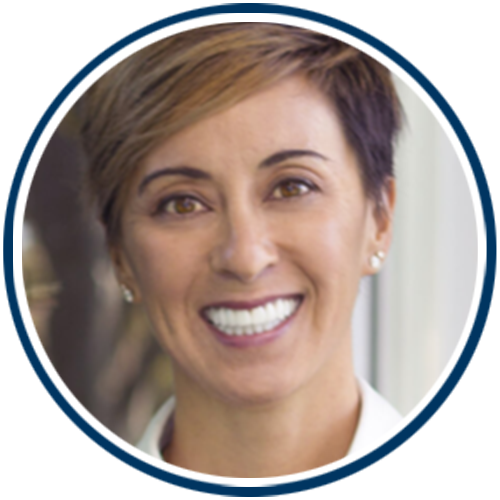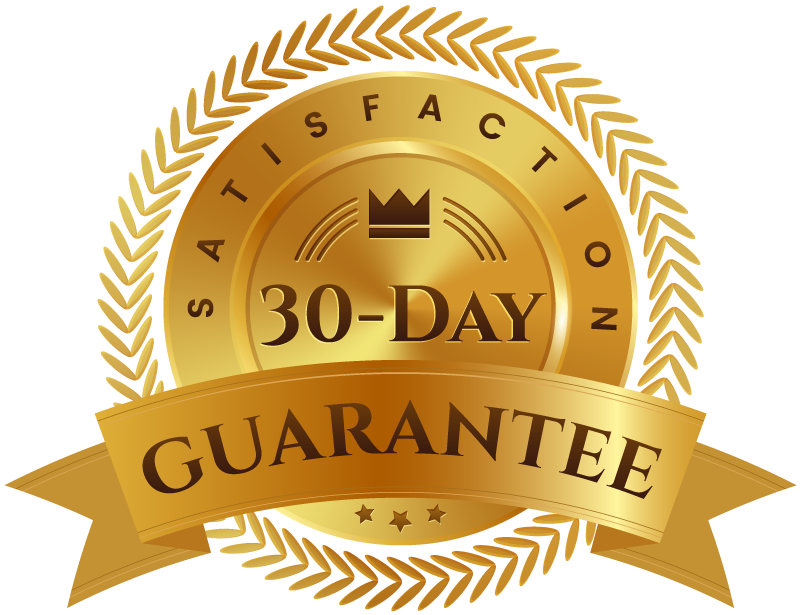Learn Effective Deposition Skills and Win the Evidentiary Battle
Watch the quick video below...
How Do Lawyers Win at Both the Summary Judgment and Trial?
Dear Attorney,
“If you don't know where you are going, you'll end up someplace else.”
- Yogi Berra
Beyond the discovery of facts and collection of admissions, effective depositions lay the groundwork for winning evidentiary battles at both summary judgment and trial.
Not knowing the questions that establish (or challenge) that a writing is a business record, for example, can have devastating effects in a case.
Hearsay statements that might otherwise be admissible, had the questioner asked about its effect on the listener, can be the difference between a motion in limine being granted or denied.
Introducing Deposition Skills Clinic…

Deposition Skills Clinic was made for business litigators who want to become better advocates for their clients. With our proven framework, attorneys will greatly improve their deposition preparation and deposition taking skills.
Here’s what you get...
Session 1
PART 1
- The difference between great facts and great evidence
- Knowing the rules of evidence in deposition
- A closer look at United States v. Microsoft (Deposition of Bill Gates)
PART 2
- What to remember about the rule of witness competency
- Personal knowledge and establishing its foundation
- What is the adverse party deposition (Individual)
PART 3
- The timing of adverse depositions
- How to use depositions for document discovery
- Preparing timelines for deposition (and trial) preparation
Session 2
PART 1
- Discovering information versus securing admissions
- Why dropping assumptions leads to effective questioning
- How to use jury instructions for deposition preparation
PART 2
- Strategies for initial deposition questions and dealing with difficult opposing counsel.
- The discoverability of documents reviewed
- What is the attorney work product Doctrine
- A closer look at Rufo v. Simpson (Deposition of OJ Simpson); Kerns Construction v. Superior Court, 266 Cal.App.2d 405 (1968); and Sullivan v. Superior Court, 29 Cal. App. 3d 64 (1972)
PART 3
- A study of Estate of Gay v. Thicke et al. (Deposition of Pharrell Williams and Robin Thicke)
- The non-privilege to refuse to be witness (Cal. Evid. Code § 911)
PART 4
- The best method for authenticating documents
- Consequences for failing to authenticate documents at trial (example)
Session 3
PART 1
- What are deposition "must gets"
- How to get commitments from the witness
- The importance of stipulations at depositions
PART 2
- How to prepare for corporate entity depositions and the duties for the corporate witness representative
- What are the questions to determine witness qualifications
- A closer look at Maldonado v. Superior Court, 94 Cal. App. 4th 1390 (2002)
- Understanding "Confidential Communications"
- Discoverable foundations of the attorney-client privilege and a case example
PART 3
- The Attorney-Client Privilege (corporate party) and "client" defined in Cal. Evid. Code §§ 950 - 962
- What are the factors relevant to determine "waiver"
- A closer look at Zurich v. Superior Court, 155 Cal. App. 4th 1485 (2007); D.I. Chadbourne, Inc. v. Superior Court, 60 Cal. 2d 723 (1964); Snider v. Superior Court, 113 Cal. App. 4th 1187 (2003); O'Mary v. Mitsubishi Electronics America, Inc., 59 Cal. App. 4th 563, 572 (1997); and W.T. Grant Co. v. Superior Court, 23 Cal. App. 3d 284 (1972)
Session 4
PART 1
- What to remember for third party depositions
- Strategies for the "friendly witness"
- Direct examination strategies and outlines
PART 2
- How to lead without leading
- What to remember with transitions and objections at depositions
PART 3
- Foundation objections and the scope of discovery at depositions
- What are the factors relevant to determine "waiver"
- What are the breaks in chain (personal knowledge and authentication)
- A closer look at Security National Bank v. Abbot Laboratories, Inc., 299 F.R.D. 595 (N.D. Iowa 2014) and Rifkind v. Superior Court, 22 Cal. App. 4th 1255 (1994)
Session 5
PART 1
- The Relevance Objection (In Disguise)
- What is the evidence analytical framework
- What to remember about exclusions and limitations
- A closer look at Stewart v. Colonial Western Agency, Inc., 87 Cal. App. 4th 1006 (2001)
PART 2
- Putting privileged communications at issue
- Rules of exclusion (Discovery v. Admissibility)
- Privacy v. Right to Discovery
- Deposition 101 letters
PART 3
- How to prepare witnesses for depositions
- Lance Armstrong’s deposition and Brett Kavanaugh’s testimony
- What are the bases for expert opinion testimony
- How to ask questions for general acceptance
Session 6
PART 1
- The "working rule" of hearsay and its exceptions
- The business records exception
- The refreshed recollection v. the recorded recollection
PART 2
- Habit v. character evidence
- Character evidence
PART 3
- How to prepare for expert depositions
- The admissibility spectrum for expert opinion testimony
- The sources or support for opinions
- What are the bases for expert opinion testimony
- How to ask questions for general acceptance
Deposition Skills Clinic Is for Attorneys Who…
- Want to sharpen their skills and improve
- Want to take effective depositions
- Want to remain flexible with questioning
- Want to be organized with a thorough and detailed outline
- Want to become better advocates for their clients
Here’s What Lawyers Have to Say About Deposition Skills Clinic...

Nathan Goldberg
Allred, Maroko & Goldberg
"I love your videos. I have been an attorney for 45 years and have won numerous multi million dollar judgments, including a judgement a couple of months ago for 58 million dollars. I feel like I am learning so much from watching these videos."

Colleen M. Pratt
"I’ve attended Mr. Sugden’s MCLE course in the past and I recommend his course to any attorney seeking to acquire or sharpen their trial skills. I would not hesitate to take another one of his MCLE courses. He has spurred my growth as an attorney which has improved my practice overall. I am grateful he takes the time out of his practice to impart his knowledge and trial experience to attorneys seeking to improve their skill set."
"What I like about Evidence at Trial and Dave Sugden’s approach to providing this type of MCLE, which I think is so different than any other MCLE course, is his focus is on building a community of lawyers that are really striving to get to that next level of legal practice."
- Shirin Forootan
"Dave is a fantastic and inspiring speaker. The Business Trial Academy delivers a great combination of big-picture theory, real examples, and useful trial techniques. I would highly recommend it!"
~ Christopher Kim
Enroll in Deposition Skills Clinic today!

30-Day 100% Money Back Guarantee
We believe this is the best preparation for the day you battle in court, and we are willing to give a 30-Day 100% Money Back Guarantee.
For 30 days, you’ll get the knowledge and training that will serve you as a trial lawyer. And if you decide what we teach won't help in any way, we won’t keep a cent.
Frequently Asked Questions

I’m a young lawyer. Will this course help?
Yes. Even if you haven’t taken your first deposition, this course will equip you with the tools necessary to take that first deposition with confidence. From handling exhibits to dealing with a difficult opposing counsel, this course will help you take your first deposition with confidence.
I’ve taken hundreds of depositions. What else do I need to know?
Litigation is a craft, and this course is for those lawyers always looking for ways to improve. Like a football team looking at game tape, we look at videos and transcripts from both masters and not-so masters of the practice to see what strategies worked (or didn’t work).
I’m already buried with work. Where can I find the time for a course like this?
But have you watched Netflix in the last few weeks? Have you browsed social media? My online courses don’t require a day away from the office. You can watch these courses from your computer or mobile device at your own pace. So before turning on Tiger King, spend ten minutes learning about the business records exception to the hearsay rule. When it comes to summary judgment or trial, you’ll be glad you did.
What makes this different from other MCLE courses?
My course isn’t just about rules or handing you information. I use a combination of big-picture theory, real examples, and trial techniques to sharpen your skills.
Can I really master the rules of evidence with your course?
Yes, with focus and commitment. Many past attendees have praised the material. Please check all the testimonials on this page (above). Looking forward to seeing you on the inside!
